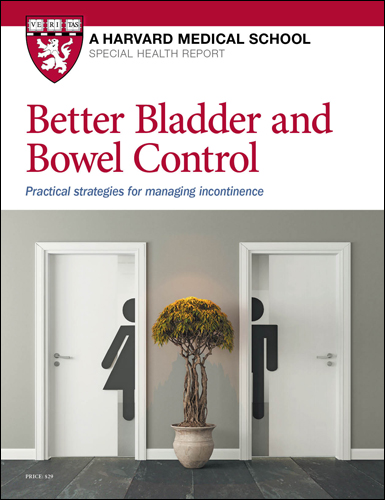Finding treatment for incontinence

When seeking help for urinary or fecal incontinence, a good place to start is with your primary care physician. But not all physicians have the necessary interest or experience. If your doctor seems unable to help, it's reasonable to ask for a referral or to seek out specialty care on your own. There are several kinds of health professionals and several types of clinics that treat these conditions:
- Urologists. These medical doctors treat the urinary systems of both men and women as well as the male reproductive organs. The American Urological Association website has a physician locator.
- Female pelvic medicine and reconstructive surgery specialists. This subspecialty includes advanced training in the evaluation and management of pelvic floor disorders. Physicians board-certified in FPMRS may be called urogynecologists, female urologists, or neuro-urologists. The websites of the American Urogynecologic Society, the American Urological Association, and the Society of Urodynamics, Female Pelvic Medicine and Urogenital Reconstruction have physician locators for these specialists.
- Colorectal surgeons. This subspecialty includes advanced training in anorectal and pelvic floor physiology and surgery. A colorectal surgeon can offer you a range of surgical and nonsurgical options for treatment of fecal incontinence, constipation, and rectal prolapse. The American Society of Colon and Rectal Surgeons has an online locator of members.
- Gastroenterologists. If you have diarrhea or digestive symptoms in addition to fecal incontinence, start with a gastroenterologist, particularly if there is no known childbirth injury or other trauma to the sphincter. A gastroenterologist will rule out other conditions that may cause fecal incontinence, such as colitis or cancer, and will start you on a drug regimen that may help manage your condition effectively. The website of the American College of Gastroenterology includes a physician locator for these specialists.
- Biofeedback professionals. Biofeedback refers to training that helps patients increase their awareness of body functions, such as pelvic floor muscle activity. Health professionals who practice these techniques include nurses, some physicians, and physical or occupational therapists. Look for someone with experience in bowel or bladder training. Ask the physician treating your incontinence or contact the Biofeedback Certification International Alliance.
- Pelvic floor physical therapists. Physical therapists trained and certified in manual, structural, and behavioral strategies to maintain continence can have a significant and longstanding impact on your continence — as well as urinary frequency and urgency, constipation, and pelvic pain. Ask your physician for a referral, or use the online locator created by the American Physical Therapy Association.
- Nurse specialists. If you are having skin problems related to incontinence or if you have not been able to find acceptable ways to manage your incontinence, a specialist in continence or ostomy nursing can offer practical advice. To find one, contact the Wound, Ostomy, and Continence Nurses Society.
You can find teams that include many of the clinicians listed above at specialized centers, such as these:
- Anorectal physiology labs. Run by clinicians and equipped to evaluate fecal incontinence, these facilities are often located in hospital departments specializing in motility disorders or functional bowel disorders as well as in some private practices.
- Pelvic floor disorder or continence centers. Some hospitals have developed clinics to provide one-stop shopping for the evaluation and treatment of many pelvic floor disorders, including urinary and fecal incontinence. These clinics frequently combine the expertise of many of the types of specialists named above, as well as others such as neurologists and physiatrists.
For more on treating bladder and bowel incontinence, read Better Bladder and Bowel Control, a Special Health Report from Harvard Medical School.
Image: © Alexander Kiblitskiy/Getty Images
Disclaimer:
As a service to our readers, Harvard Health Publishing provides access to our library of archived content. Please note the date of last review or update on all articles.
No content on this site, regardless of date, should ever be used as a substitute for direct medical advice from your doctor or other qualified clinician.













